Israeli Backpackers Around the world – Asia & South America
The Israelis, who are used to traveling the world. “The Great Journey” has become a tradition of the soldiers of the Israeli army at the end of their service. During it, the boys receive a good salary, depending on which troops serve, allowing them to accumulate enough money to continue their lives afterward.
As soon as the necessary amount has been accumulated, the boys set out on the long-awaited journey. Statistics say that every year about 50,000 thousand soldiers and female soldiers go to Australia, Peru, Argentina, India, they travel in South America. They choose very different directions, often traveling for a long period of time, up to six months, sometimes even taking a tent to save on accommodation
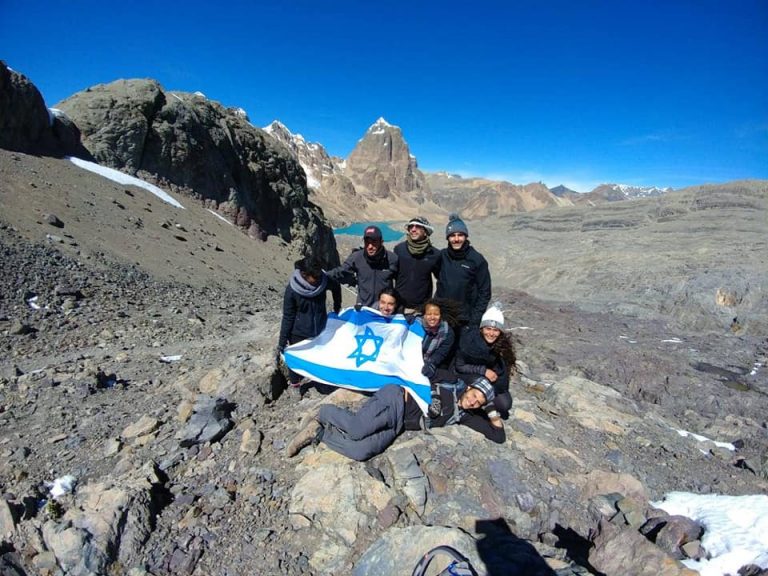
The most popular vacation destinations are Thailand and the Maldives. Among the cities: London, Tokyo, Paris, Amsterdam and, of course, New York are the most visited. Cyprus can also be called one of the most popular travel destinations – it is there that it is convenient to formalize relations if in Israel this becomes impossible due to the peculiarities of the work of the rabbinical court.
Under Jewish law, people who do not belong to a recognized religion in the country and mixed couples cannot get married in Israel.
Below we transcribe a note on this topic that appeared in Forbes

From Soldiers to Backpackers
Each year, 75,000 soldiers are discharged from the Israel Defense Force. A third of them then travel across Asia and South America, supporting businesses at home and abroad.
Original Note in Forbes – by David Yin – 2013
Out Of Israel, Into The World
Ten years ago, Dan Nahum, now a 23-year old sophomore at Yale University, found Yossi Ghinsberg’s Back from Tuichi on the family bookshelf. Reading about the author’s remarkable tale of survival as he backpacked through the Bolivian jungle after his tour of duty in the Israel Defense Force, Nahum decided that he, too, would travel to South America one day.
In high school, Nahum began working and saving for his dream trip. Shortly after being discharged from the army, Nahum embarked on a six-month expedition from Argentina to Bolivia, which he estimates cost him about $5,000. “[After] three years of being ordered around all the time, you just want a break and rest a little bit before going back to working. It’s kind of an expression of freedom when you backpack,” says Nahum. “You’re as free as you can ever be.”
Nahum is one of 30,000-40,000 Israelis who backpack overseas every year, according to research by Issta, Israel’s largest travel agency. (Issta, which stands for ‘Israeli Student Travel Association,’ was originally founded as a student exchange organization at the Technion – Israel Institute of Technology in 1956.) Seventy percent of these backpackers are between the ages of 20 and 24, which means they represent one third of the 75,000 Israelis who have completed their mandatory military service and are discharged from the Israel Defense Force each year.
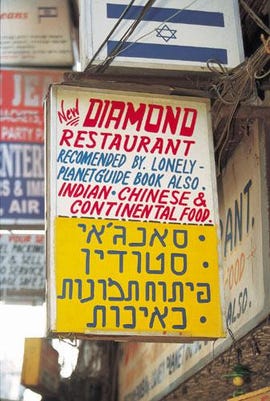
Israeli Backpackers fly to Asia & South and Central America
According to Issta Director of Marketing Noam Ron, 60 percent of Israeli backpackers fly to Asia (mostly South and Southeast Asia), 30 percent to South and Central America, and the rest to Australia, New Zealand, and Africa. On average, they travel for six months, while ten percent travel for more than a year. Ron estimates that a half-year backpacking trip costs $9,000 in South America, $6,000 in Southeast Asia, $4,000 in South Asia, and $12,000 in Australia or New Zealand—depending, he says, on “how many crazy attractions you do in New Zealand.”
Post-army Israeli backpackers therefore represent a $150 million annual opportunity for the global tourism industry, the equivalent of Haiti’s total tourism receipts. Moreover, they are part of a worldwide trend. According to a 2011 report by the World Tourism Organization, youth travelers comprised 20 percent of the 940 million international tourists in 2010 and generated $165 billion in tourism revenues. Since they are “often money poor but time rich,” youth travelers tend to take much longer trips and spend almost three times more than the average international tourist.
In many popular destinations—such as South and Southeast Asia, and South America for Israeli backpackers—entire industries have sprung up to cater to youth travelers. Understanding the phenomenon of Israeli backpackers sheds light on new business opportunities, as more youth travelers penetrate different corners of the world.
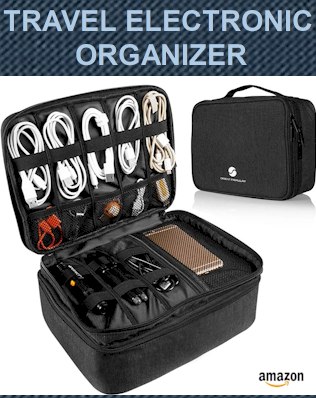
It’s so mainstream, so part of what everybody does
Danny Avraham, now 25, finished his service as an Israel Defense Force officer in December 2010. Two weeks later, he flew to Patagonia, the southernmost tip of South America, where he began a two-month expedition across the continent. With his remaining time before starting college, Avraham spent another ten weeks in India and Nepal. Although he only started planning his backpacking logistics during his last few months in the army, Avraham says he had grown up thinking about “this long backpacking trip.”
For many Israelis, a backpacking trip after their mandatory military service is as much a rite of passage as the two or three years they spend in the army. “It’s a very inherent part of Israeli society,” says Avraham. “[It’s] something you automatically do.” Even those who do not backpack usually take shorter trips abroad. “People had a rough time in the army,” explains 21-year old Lia Weiner, who traveled in South and Central America for 14 weeks with her best friend after they were both discharged. “They need to blow some steam off, get over the hard things they had to see.”

Lieutenant Libby Weiss, who heads the North American media department in the Israel Defense Force Spokesperson’s unit, thinks many discharged soldiers backpack to “see the world and recharge themselves for the next chapter in their lives.” According to her, soldiers nearing the end of their service generally know where they are traveling to and will ask about each other’s travel plans. “For many Israelis,” she says, “this period of travel following military service is the first opportunity for extended travel, the chance to go from highly disciplined military routine to the freedom of world travel.”
“In Israel it’s hard to separate backpacking from the military,” says Chaim Noy, an associate professor at University of South Florida, Tampa and an expert on Israeli backpackers. According to Noy, the backpacking culture in Israel started in the 1970s when many soldiers, traumatized by the 1973 Yom Kippur War, wanted to distance themselves from the country to recover from their psychological wounds. Since “every generation has its war,” Noy explains, backpacking has blossomed into a tradition that continues to this day.

Backpacking became more popular in recent decades
Amir Sagron, the Israel Fellow at the Joseph Slifka Center for Jewish Life at Yale, believes backpacking became more popular in recent decades as the country’s economy boomed and globalization made international travel easier. Given the similarities between military service and backpacking, such as having to carry a big bag and camp out in the open, Sagron argues that backpacking has become a natural choice for those with free time between the army and college.
The backpacking culture stems from the Israelis’ general penchant for overseas travel. According to the Israeli Central Bureau of Statistics, 4.2 million Israelis—out of a total population of 7.9 million—will have travelled abroad by the end of this year, with 90 percent leaving by air.

“[We] try to interact with rest of the world,” says Shahar Azani, the Consul for Media Affairs at the Consulate General of Israel in New York, who worked at the Israeli Embassy in London after he completed his military service in 1998. “At the end of the day, Israel is a small country. You want to acquaint yourself with new experiences.”
University of South Florida’s Associate Professor Noy also cites the tense geopolitical situation in the Middle East, which limits the countries Israelis can visit in the region, as a reason for flying abroad. “Around Israel there is nowhere to travel to. There’s sea to one side and countries with which it’s at war on the other side.”
You earn your own money, you choose how to spend it
Most Israelis start saving early to pay for their backpacking trips. For non-officers in the army, a monthly allowance of $100 is barely enough for sustenance, much less overseas travel. Upon discharge, however, a soldier receives a bonus of between $1,500 to $3,300, depending on the length of service and whether one was in combat service. This usually covers part of the travel costs.
It is common for Israelis to work for up to a year to scrape together additional funds for backpacking. “None of my friends will not go because they don’t come from wealthy families,” says Weiner. “You earn your own money, you choose how to spend it.”

Like many around her, Weiner worked as a hostess and bartender—for five months—before traveling. Her best friend and travel companion, Lola Korenhendler, took a loan from her father and now works as a waitress to pay him back. Recognizing the demand for temporary employment, the Israeli Ministry of Defense started a program in January that offers discharged soldiers short-term jobs at gas stations, hotels, and farms. These jobs offer a monthly salary of about $1,100, plus a one-time grant of $2,600 after six months of work.
Other Israelis work and backpack at the same time. Some volunteer at Jewish summer camps in the U.S., where they are usually provided with free accommodation and airfare, and then take the opportunity to travel across North America. Many Israelis also peddle Dead Sea beauty products such as face creams and soaps to pay for their trips. Abir Hod, a 25-year old student at Ben-Gurion University, sold painting kits to children while traveling in Canada three years ago. “It was okay money, but an unique experience,” he says.
Parents from more well-to-do families often sponsor at least part of their children’s backpacking trips, allowing them to travel longer or work less. There are also parents who sponsor their children because they value education and do not want their sons or daughters to work and delay matriculation.

You find so many Israelis there! It’s a mini Tel Aviv
Hila Segev, now 24, was born in Paraguay but moved to Israel with her Israeli adoptive parents when she was three months old. She had always dreamed of visiting South America—not just because “everyone in Israel does it,” she says, but because “there’s a special connection between South American and Israeli cultures.” She remembers watching Spanish-language soap opera and television shows with her friends during their childhood. “[We] grew up knowing and understanding that culture.”
“South America is perfect because it has incredible treks, places to see, and also parties that are really fun,” says Weiner, who backpacked with her best friend, before adding that it is “really cheap.”
“You find so many Israelis there!” exclaims the Slifka Center’s Sagron, describing Cusco, Peru, where he had stayed for three weeks. “It’s a mini Tel Aviv.”

As more Israelis backpack around the world, they develop their own lingo. Commonly taken paths, named “hummus trails” after the popular Middle Eastern food dip, are lined with sightseeing spots and go-through towns that let them restock their supplies.
Depending on the season, Israeli backpackers in South America usually trek northward from Argentina or Chile (“rising wave”), or southward from Peru or Brazil (“falling wave.”) Avraham says that backpackers in the area identify each other by their “wave” and that the probability of meeting other Israelis in the same wave is very high. “You keep running into the same people, sometimes on complete different sides of the continent.”
They are the unnamed ambassadors of Israel
Like South America, India became popular with Israeli backpackers due to its rich culture, low costs, and accessibility to tourists. “South America is more about trekking and learning Spanish,“ explains Darya Maoz, who teaches sociology and tourism at Hadassah Academic College and the Centre for Academic Studies in Israel. “The image of India in Israel is a place to rest.”
Maoz adds that many backpackers learn yoga or meditation in India, while others spend days or even weeks resting at a village. Reut Bornovski, a 25-year old Technion student who spent nine months in South America and recently came back from a two-month trip to India, thinks Israeli backpackers are more assimilated into local communities in India than in South America. She describes her experience in India as more serene and relaxed, and says she met several Israelis who married locals and settled down in India.

Although more expensive than most other destinations, Australia and New Zealand are becoming popular with Israeli backpackers. Anna Darzi, currently a student at Technion, says she visited New Zealand because she was drawn to the sceneries in the Lord of the Rings. She also chose Australia and New Zealand because they did not have as many Israelis as South America.
Despite trying “to save as much as possible,” Darzi says her airfare and transportation were expensive, as was her hiking equipment. “Waterproof clothes are important in New Zealand because it rains almost all the time [in certain areas,]” she adds. “When you go hiking for a few days, you don’t know what kind of weather you’ll have. You pretty much have to be ready for everything.”
“Africa is not as organized as India for backpackers,” says Issta’s Ron, citing the continent’s underdeveloped backpacking infrastructure as the key reason for its relatively high costs. He adds that there are few hostels in Africa and it is hard to get around without a jeep. (A search on hostelworld.com reveals that Cusco, Lima has 29 hostels, compared to 4 in Nairobi, Kenya, which has 10 times Cusco’s population.) But some Israeli backpackers have already begun going into Africa. Recalling his days as Deputy Ambassador at the Israeli Embassy in Nairobi in the mid-2000s, the Consulate General’s Azani remembers seeing many Israeli backpackers who volunteered at animal orphanages and humanitarian projects, often with those from other countries. “They are the unnamed ambassadors of Israel.”
It’s part of a lifestyle, of being more native and authentic
The typical Israeli backpacker is spontaneous, cost-conscious, and likes traveling in groups. “When you’re a backpacker and travel for such a long time, you don’t plan on a day to day basis,” says Avraham, recounting his trip to South America and South Asia. “You just go to a destination and figure out from there.”
Unlike backpackers from other countries, Israelis tend to book their travel arrangements on the spot. They often set base at a hostel and spend days to weeks exploring the surrounding areas. During her four-month trip in South America, Segev would announce her latest location on Facebook and often get replies from her friends about meeting up.
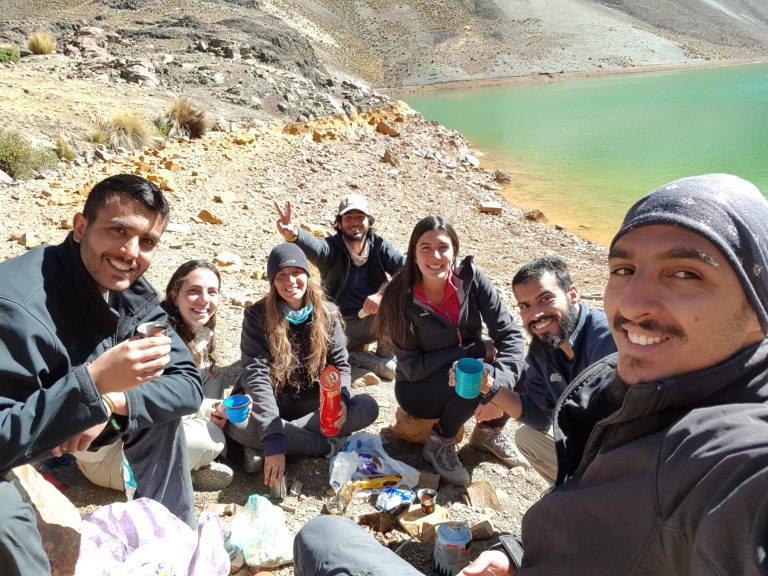
“[Flight] order in most cases is done ahead, as an open ticket with a year time limit,” writes Anat Friedman, a spokesperson for the Israeli national airline El Al, in an email. According to Issta’s Ron, Israeli backpackers tend to change their flights frequently. Recognizing this, airlines such as El Al offer young travelers open tickets that allow them to change their dates or flight locations without extra charge.
Most Israeli backpackers travel cheaply, choosing youth hostels over hotels and local transportation over tour buses. Two of their largest expenditures are accommodation and food, with many sleeping in tents or cooking their own meals to minimize costs. However, they are willing to spend more on must-see sights. “Traveling cheap is not just a financial thing,” says University of South Florida’s Noy. “It’s part of a lifestyle, of being more native and authentic.”
Israelis are more collective than backpackers from other countries, often traveling in groups of 5 to 20. Maoz, the senior lecturer at Hadassah Academic College and Centre for Academic Studies, believes that as much as they wish to explore new places, Israel backpackers also feel more comfortable when traveling with their compatriots. Many also congregate at Chabad houses, or Jewish community centers, for Shabbat dinner on Friday nights. “Back home we have Shabbat dinner every week,” explains Darzi. “So that was like home away from home.”

Today, information is based on sharing and crowdsourcing
Gil Chen, now 35, completed a three-month coast-to-coast road trip in the U.S. upon his discharge from the army. After graduating from Tel Aviv University in political science nine years ago, he volunteered for a year in Tanzania, where he started writing for the travel website Lametayel. He then completed a second degree in diplomacy at the same university, before flying to Cambodia for a year to manage Lametayel-related projects. Today, Chen is the manager of Lametayel Websites Group. “I try to balance traveling and working as well as I can.”
Ask any Israeli about backpacking, and he or she is likely to mention Lametayel, which means ‘for the traveler’ in Hebrew. It started selling backpacking-oriented travel gear in 1984. Now it has 18 physical stores across the country, with two in Tel Aviv, as well as the largest Hebrew-language travel website.
Chen says the company’s success lies in building a community of travelers through offering useful content. When the company first started, it stood out by organizing free lectures given by experienced backpackers. Its stores also carried large binders—divided by continents and countries—where people could share travel tips.
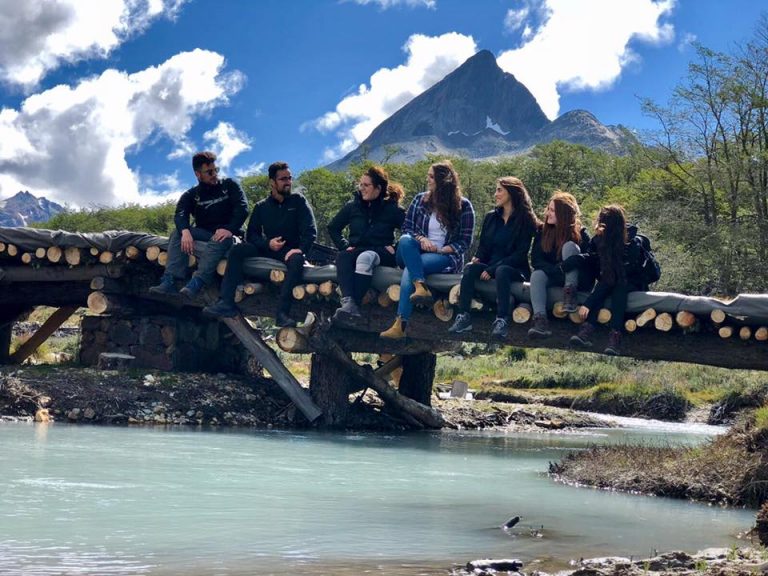
“We provide a 360-degree experience,” Chen describes the company’s stores, which, he says, welcome two million annual visitors and bring in over $28 million in revenues. “You can come into the store, buy insurance, buy a SIM card, and book flights or hotels through our company website,” he explains. (Although Chen states that both stores and website are profitable, he declines to reveal the company’s profits.)
When the Lametayel website was launched in 1999, it quickly became a hub for Israeli backpackers. “It’s all part of the Internet revolution. A few years ago, you just receive information [from websites,]” Chen says. “Today, information is based on sharing and crowdsourcing.”
Besides greeting visitors with a search bar that asks ‘Where’s your next destination?’ in Hebrew, the Lametayel website now features travel tips by backpackers, including recommendations on hotels and restaurants. When Chen and his team receive these tips—which can hit 1,000 per day during summer—they review, edit, and publish 70-80 percent of them. On average, the website gets 60,000 visits per day.
According to Chen, ever since the website broke even three years ago, revenue has jumped by 35-40 percent per year, to $1.8 million last year. Its revenue comes from advertisements, producing content for partners such as airline companies and foreign embassies, and commissions from hotel or flight reservations. “People trust others like themselves,” Chen explains the website’s appeal to Israeli backpackers. “Ultimately, [fellow backpackers] have better experiences than travel agents.”

Lameteyal’s success hinges on Israeli backpackers’ willingness to trust and help each other out. When they travel, they rely heavily on word-of-mouth recommendations by other Israelis. “When you go to hostels, there are recommendation signs written in Hebrew by Israelis,” explains Segev. “They sign their names, so if you have questions you can Facebook them.” Eli Gudinetsky, a 22-year old physics and computer science student at Ben-Gurion University, will begin his army service after graduation. Although he has not decided where to go on his backpacking trip, Gudinetsky says his “basic filter will be the experiences of other people.”
“Israelis bargain a lot. There are different Israeli rates everywhere you go,” continues Segev, before adding that the influx of Israeli backpackers has prompted many businesses to put up signs in Hebrew. “If you go, you’re probably recommended by your friends.” By giving special discounts to Israeli travelers, business owners hope their customers will encourage their friends to visit their hostels or use their travel services in the future. “A lot of venues realize they get more customers if they get the language right,” says Nahum.
I didn’t know how big this opportunity was when I first came
Six years ago, Ziv Hadar, then 23, was backpacking in South America for eight months when he met his current fiancé, a Peruvian woman named Nancy Rosales. As they dated and traveled around the world together, they decided they wanted to let more people meet in the same way they did.
In 2011, Hadar and Rosales rented a big building in the heart of Lima’s tourist-friendly Miraflores district, and opened HosteLima. “I love the city. Israelis love the city. It’s a good place to start,” says Hadar.
His 60-bed no-frills hostel, which charges $10 per night, became hugely popular with Israeli backpackers in Lima, who were looking for Israeli owners who spoke both Spanish and Hebrew. Hadar also sells bus and flight tickets at the hostel, which now brings $300,000 in annual revenue. During the peak travel season from March to October, HoteLima is always fully booked, and Hadar knows it “will be full with Israelis.”

“I see the opportunity we have here,” says Hadar, who believes demand by Israeli backpackers will continue to rise. “I didn’t know how big this opportunity was when I first came.”
Another Israeli backpacker, Nir Rabi, now 32, traveled in South America for nine months in 2004. It was then that Rabi realized most of his fellow backpackers were writing their recommendations using pen and paper, and decided to create an online database instead. A year later, Gringo, which means ‘foreigner’ in Spanish, was born.
Rabi says the website quickly became popular because it tells Israeli backpackers exactly “where to go and what to avoid” in South America, citing its useful information on “taxi drivers’ dirty tricks, Jewish communities, and kosher shops.” Weiner, who used Gringo during her South American trip, says, “[It] specifies all the places Israelis go. If you want to meet Israelis, you just go there…People call it the bible when backpacking.”
According to Rabi, the website gets 100,000 monthly visits during peak season, of which 80 percent are by post-army backpackers. Revenue comes from advertising by tour operators in South America and Israel, such as gear shops, travel agencies, and Spanish language schools. Given its popularity with Israeli backpackers, Rabi hopes to expand the business into a chain of websites that covers travel destinations around the world.

You can see whole communities that have developed on the basis of Israeli tourism
As post-army Israelis explore new destinations, they continue to open new tourist spots and pave the way for other backpackers. According to Issta’s Ron, some of these spots are extensions of existing popular routes. Many backpackers who take the typical South American trail are venturing into Panama, Nicaragua, and Honduras. Ron adds that Asia-bound backpackers are visiting beaches in Sihanoukville, Cambodia or the Andaman Islands in India for a “more authentic, more remote, and isolated experience.”
When waves of Israeli backpackers enter and explore a new area, they stimulate the local economy. According to Nguyen Hong Dai, chief executive and owner of Hanoi-based travel agency APT Group, Israeli backpackers started entering Vietnam in the early 2000s. When Nguyen noticed that they travel in relatively large groups and usually recommend places to other Israelis, he started tailoring his tours to them. “We have opened an Israeli restaurant in Hanoi and a hotel in Sapa [in northwest Vietnam] that is populated mostly with Israeli hikers,” he writes through email. In 2005, Nguyen recruited Dima Tsirkin, an Israeli travel agent who now runs the company’s main agency in Hanoi and is tasked with bringing in more Israeli travelers.

Given the travel habits of Israeli backpackers, Ron argues that they mostly benefit small, family-run businesses in underdeveloped countries. “You can see whole communities that have developed on the basis of Israeli tourism,” he says, citing the widespread use of Hebrew in menus and billboards at destinations popular with Israeli backpackers.
“You learn to hit the ground and start running wherever you go”
Nahum, the sophomore at Yale, hasn’t stopped since his South American expedition. He backpacked in China last summer and plans to visit Cuba during his college winter break, explaining that he wants to “see it before it opens up to the West.” Like many of his fellow Israeli backpackers, Nahum wants to keep exploring the world.
“It gives you perspective on life and people. Nothing is permanent; you never see the same face twice, you never see the same place twice,” says Nahum. “You learn to hit the ground and start running wherever you go.”
Original Note in Forbes – by David Yin – 2013




